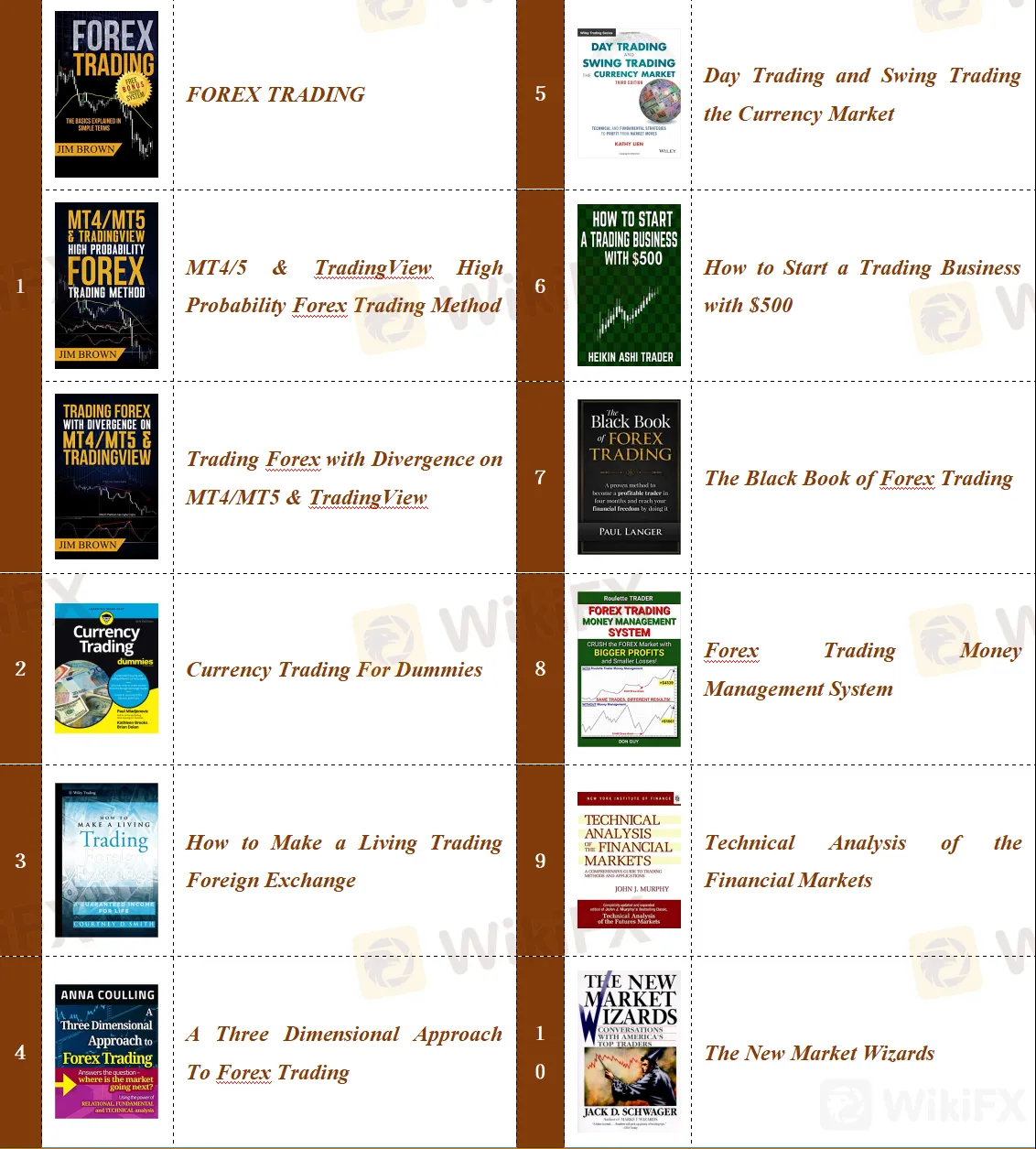User blogs
The Nuance Of Blockchain Learning In The Education Space
The world of crypto has certainly seen better days. According to the Washington Post, some describe the collapse as a crypto winter that could lead to a potential ice age. As the article suggests, the collapse, although severe, has managed to avoid majorly disrupting the overall financial markets to a large-scale effect.To get more news about learn blockchain, you can visit wikifx.com official website.
To the cautious optimists, even those that lost significant gains, the crypto winter could represent part of the evolutionary cycle of a nascent technology working through adjustments. According to Nasdaq News and Insights, “The underlying technology of cryptocurrencies, blockchain, can still be of benefit outside the cryptocurrency market. The two are often linked together, but blockchain can serve its purpose in various industries other than the crypto market.”

A greater understanding of blockchain technology is still in its infancy. A recent Gartner poll shows that only 2% of higher education institutions embrace blockchain learning, with another 18% considering it. However, parents of college-aged adults with knowledge of blockchain seem more eager to see it adopted into the curriculum. A poll conducted by Coin Telegraph insists 64% of blockchain-versed parents want it taught in school.For Web3 advocate and CEO of Lunar Digital Assets, a boutique marketing and incubation firm for Web3 startups, Roc Zacharias, more focus should be placed on the interest in blockchain technologies for students and society. "More young people are launching blockchain-based startups than ever before, and many more are signing up for third-party educational courses on the technology. So the interest and the audience is obviously there," he says.
This reporter connected with Roc Zacharias to examine the current environment affecting blockchain technologies and efforts to increase understanding of blockchain learning inside the educational space.
Roc Zacharias: I started with digital currencies before they even existed. As a teenager, I was selling assets I collected in games to industry legends like Brock Pierce long before bitcoin was even invented.
During the early days of crypto evolution, I was a pre-med student in college, but I eventually dropped out when I realized how big cryptocurrencies and blockchains would become. I instantly knew that my destiny lay there and not in medicine.
I am currently fulfilling my calling by leading one of the most well-reputed marketing agencies in the blockchain space. I am also a co-founder of QuickSwap, Polygon's largest decentralized exchange, and a core team member and advisor for Dogechain.
I spend most of my time researching the latest trends in Web3 or advising blockchain startups and projects.
Berger: Describe Lunar Digital Assets (LDA). What you do as a company, your ideal clients, and the impact it has in the space.
Zacharias: The best way to describe LDA is as a boutique marketing and incubation agency. We work primarily with crypto startups who have already formed their development team, started their project's construction, and are looking for some guidance and marketing to fulfill their full potential. We offer professional advice, technical support, marketing materials, social media management, and Web3-focused PR, among other services our clients request.
Berger: There are a growing number of universities across the globe providing curriculum in blockchain, including the University of California Berkeley, the University of Zurich, MIT, Stanford, and Oxford, to name a few. Based on your knowledge of the space, is it wise for educational institutions to adopt blockchain-based education considering the current instabilities in the blockchain and crypto space?
Zacharias: The world should be paying more attention to blockchain and the Web3 revolution than they currently are. Educational systems are a great way to mainstream understanding. Blockchain as a technology is more than just cryptocurrencies. It's a technology that is here to stay. It may be futuristic and revolutionary, but it is also involved in solving many real-world problems today.
What Is the Next Cryptocurrency to Explode in 2023?
The most exciting thing about cryptocurrency investments is that, when they explode, they skyrocket in value. In 2021, we saw Solana (SOL 2.0%) increase by more than 10,000%. Meme token Shiba Inu (SHIB 1.26%) shot up more than 40,000,000%.To get more news about crypto projects, you can visit wikifx.com official website.
Of course, 2022 hasn't gone nearly as well. Crypto entered a bear market, and prices of most major coins fell significantly. Although there's no guarantee that crypto is here to stay, the market has bounced back before.

It's obviously impossible to know with certainty which cryptocurrency is next to explode. However, we can pick out some possible candidates that are capitalizing on current trends that include decentralized finance, data storage, and digital payment solutions.
1. 1inch
1inch Network (1INCH 2.0%) is a decentralized exchange (DEX) aggregator. Decentralized exchanges allow users to swap different cryptocurrencies just by connecting a crypto wallet. There's no central authority managing the exchange, and, with many DEXs, there's no need to register for an account either.
Decentralized finance (DeFi) was huge in 2021 as many crypto enthusiasts used DEXs to trade cryptocurrencies. 1inch is a simple way to get the most for your crypto when using DEXs. It instantly compares prices on hundreds of different platforms to find the best rate for you.
Although the aggregation protocol is extremely useful, it's not all that 1inch offers. Other 1inch products include a limit-order protocol that lets you set specific trade conditions and 1inch Earn, a program to earn interest by depositing crypto to liquidity pools.
2. Ethereum
At first glance, Ethereum (ETH 4.8%) might seem out of place here. It's far from under the radar. It has been the second-largest cryptocurrency for years, so most crypto investors know about it, and many already own some.
While we're probably past the point where Ethereum shoots up by 10,000%, it still has serious growth potential. It was the first blockchain to offer smart contracts, which developers can use to build decentralized apps (dApps). Ethereum’s first-mover advantage has given it a sizable lead over similar competitors.
Ethereum went through its long-awaited Merge to a proof-of-stake system in September 2022, significantly improving its energy efficiency. The upgrade could be a key factor that helps increase Ethereum's value and attracts more investors.
3. Aave
Aave (AAVE 1.53%) is one of the most popular and user-friendly lending protocols. Users can borrow and lend many different types of cryptocurrency. If you deposit your cryptocurrency to Aave, you'll receive interest payments for lending your funds.
Its unique features have helped Aave outdo other crypto lending protocols. Borrowers can switch from fixed to variable interest rates and vice versa. Aave is also known for its FlashLoans, which are loans that don't require collateral. They do, however, need to be repaid in the same transaction.
Aave is a governance token, which means holders can vote on the future of the protocol. They also get fee discounts when using Aave's services.
4. SushiSwap
Automated market makers (AMMs), which are decentralized exchanges that run on smart contracts, grew quite a bit in 2021. Although there are many AMMs out there, SushiSwap (SUSHI 1.47%) could be the one most poised for a big run.
SushiSwap supports more than a dozen different blockchains, which allows it to offer some of the most competitive rates. It's also one of the top options for staking crypto. It offers a huge variety of liquidity pools and makes it easy to see the annual percentage yield you can earn with each one.
5 Crypto Scams To Watch Out For
Swindlers exploit various schemes to lure victims into fraudulent crypto investments. They even go as far as entering into fake relationships through dating apps like Tinder.To get more news about crypto exchange scams, you can visit wikifx.com official website.
Headlines like “Crypto and Romance Scams Continue to Cost Victims Billions” and “A Romance Scammer Took Her Life Savings in Crypto” are becoming commonplace.

In fact, crypto romance scammers conned victims out of $139 million last year, according to a 2022 report by the Federal Trade Commission (FTC). But that’s just one type of scam of many.
The FTC also found that more than 46,000 consumers reported losing more than $1 billion in crypto between Jan. 1, 2021 and March 31, 2022. And that might be just the tip of the iceberg—there are likely more victims out there who didn’t report their incidents.
Aaron Cohn, partner at Weinberg Wheeler Hudgins Gunn & Dial, a law firm focused on financial fraud, says his practice has seen a strong increase in victims seeking help with hacked crypto accounts.
“Retail investors considering crypto investments need to understand the elevated risks and should employ heightened safeguards to help ensure they do not become the next victim,” Cohn says.
What Are Crypto Scams?
Crypto scams are like any other financial scam, except the scammers are after your crypto assets rather than your cash.
Crypto scammers use many of the same tactics employed in other financial crimes, such as pump-and-dump scams that lure investors to purchase an asset with fake claims about its value or outright attempts to steal digital assets.
This latter type of scam could involve breaking into a person’s crypto wallet or getting an investor to send a digital asset as a form of payment for a fraudulent transaction, says Shane Cummings, wealth advisor and director of technology and cybersecurity for Halbert Hargrove.
The goal is always to manipulate victims into divulging personal data or transferring valuable digital assets like non-fungible tokens (NFTs) to the perpetrator’s account.
“As an instrument, crypto scams are particularly appealing to nefarious agents who enjoy cryptocurrency’s swift conversion to fiat money, ready-to-use third-party transaction applications and rich obfuscation techniques,” says Chengqi “John” Guo, professor of computing information systems and business analytics at James Madison University.
Investment scams involve a bad actor enticing people to send their cryptocurrency to the fraudster with promises of “huge gains.”
Scammers can play many parts, such as an “investment manager,” a celebrity or even a love interest on an online dating site. Whatever role is assumed, they promise to grow your investment if you transfer your cryptocurrency to them.
Investment scams include pump-and-dump schemes. A fraudster entices you to buy an obscure crypto at a “low price,” with promises that the asset’s value will soon go through the roof.When you buy, the price rises, at which point the scammer dumps their holdings at the new higher valuation, which causes the price to collapse, leaving you and any other victims underwater.
“Given the speed at which new coins are created and marketed to investors on the internet without regulation, some investors looking to earn a quick profit are drawn in by reports of triple-digit percentage gains in a digital asset over a short period of time and want to jump on the bandwagon,” he says.
These schemes often begin on social media or online dating sites, so be wary of anyone contacting you out of the blue about your crypto assets. Watch out for anyone talking up a particular crypto asset on Reddit or other social media platforms, too. These are known as socially-engineered scams.
Blockchain Workforce Grows 80% According to LinkedIn Survey
Even after a rough first half in 2022 for cryptocurrencies, it hasn't quite put a dent in the growth of blockchain. According to a survey collaboration by LinkedIn and OKX, the number of individuals working in the blockchain sector increased almost 80% annually as of June 2022.To get more news about blockchain field survey, you can visit wikifx.com official website.
Blockchain technology isn't isolated to just cryptocurrencies. From finance to healthcare, major industry participants are using blockchain technology to improve their core business operations.
"Blockchain technology is one of the trendiest developments in business, finance, and numerous other industries," a Bitcoinist report explained. "Following the surge in popularity of cryptocurrencies, their entry to the public has produced new investment strategies and opportunities."

"There has been a surge in the number of people who have found employment in this burgeoning technological sector as a result of the increasing popularity of blockchain and cryptocurrencies," the report added.
Even given the latest growth spurt, there's still room to expand. Blockchain technology is still in its nascent stages, providing opportunities for further growth and expansion.
"Since its beginning a little more than a decade ago, the blockchain sector has experienced tremendous expansion, but the rate of development has accelerated significantly in recent years," the report said. "While the industry and its growth are frequently evaluated based on market capitalization, trading volume, and other financial criteria, the firms comprising this sector are led and managed by people with a wide range of skills."
Capture Blockchain Growth in 1 ETF
One way for investors to capitalize on this growth is to consider a blockchain-focused exchange traded fund (ETF). One option to consider is the Amplify Transformational Data Sharing ETF (BLOK), which features active management strategy that can flex with the movements of the market by putting holdings in the hands of seasoned portfolio managers.
With 50 holdings as of August 12, BLOK adds diversified exposure and cryptocurrency exposure without investing in the currencies themselves. As mentioned, BLOK is actively managed, investing in companies partnered with or directly investing in companies utilizing and developing blockchain technology, which is the technology behind cryptocurrencies like bitcoin.